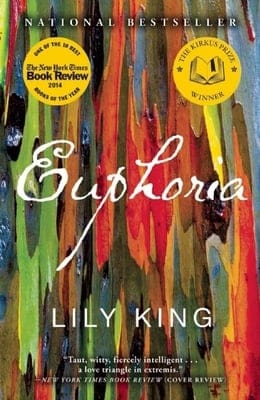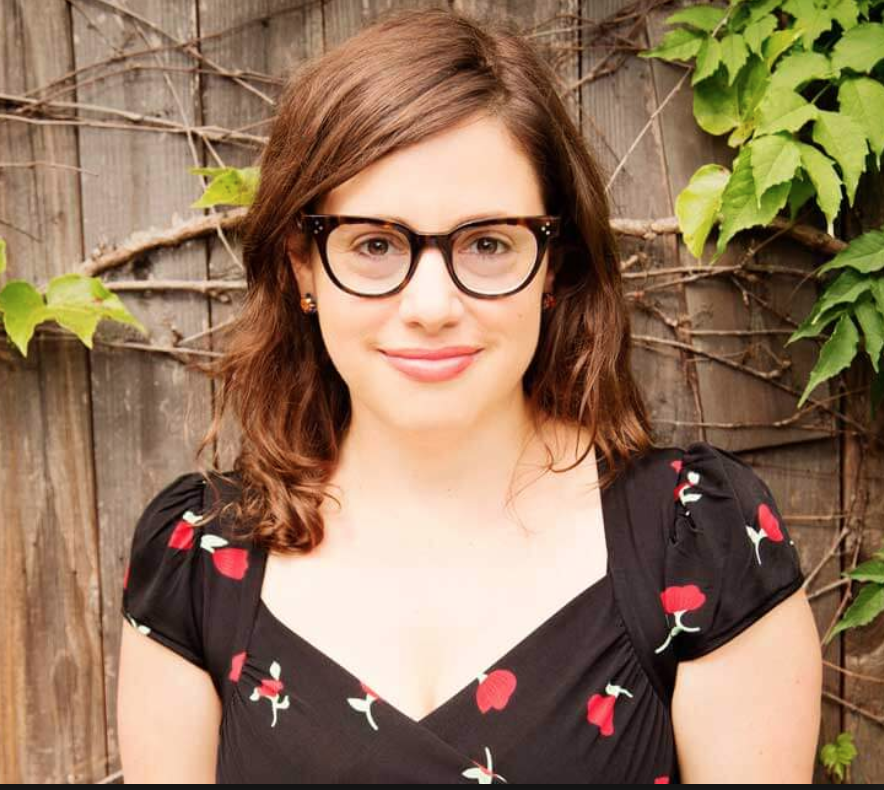The Maris Review paid subscriber bonus #1

Welcome to your new weekly book recommendations list. If you have any requests, please email me at themarisreview@gmail.com.
From Anna Leah: I’m always looking for literary page-turners, ideally by a non-man. Some fave fiction pieces include: Bel Canto by Ann Patchett, Gilead by Marilynne Robinson (yes, slow), Nickel Boys by Colson Whitehead, Mixed up Files of Mrs Basil Frankweiler by EL Konisburg, and Homegoing by Yaa Gyasi. I’m also a fan of Maggie Nelson, Eula Biss, Patrick Radden Keefe, Randy Shilts, and Jon Krakaeur (excellent CNF, especially narrative or journalistic). So I guess, I want thought-provoking, beautiful language but not at the expense of intrigue and suspense. A fairly early inciting incident can help? Save me from devouring *sloppy* YA dystopians for the dopamine thrill.
I love a well written book in which nothing much happens, but I get it. They're not for everyone. I absolutely understand this desire for a combination of great writing with compelling plotting; it's truly the holy grail. I also really love that Anna Leah asks for recommendations for both fiction and nonfiction. I always feel lucky when I discover a new journalist who writes like a fiction writer. Not every journalist can get the support – financial and otherwise – to do book-length reporting, so I always feel lucky when I discover a nonfiction writer who has the chops of a novelist.
Recent favorites that I've written about:
A Marriage at Sea: A True Story of Love, Obsession, and Shipwreck by Sophie Elmhirst
This book is bonkers, one of those true stories that contains so many metaphorical implications that you might be tempted to think it's fiction.
What makes a couple want to live at sea? When British couple Maurice and Maralyn Bailey set sail on their new boat, the Auralyn, in 1973, they're newly married and headed for the wilds of New Zealand. Marilyn is looking for adventure; Maurice, the proverbial wet blanket (I'm not sorry), was more likely looking for reclusion. They're in the middle of the Pacific Ocean when the Auralyn is struck by a sperm whale and sinks. They spend the next 118 days in a small raft (with a dinghy attached) together, hoping to be rescued.
Sophie Elmhirst's account of the couple's misfortunes is fast-paced and well done, pulling on the couple's own writing (both are deceased) as well as ancillary interviews. We don't linger too long with them on that raft; just long enough to ponder the details of daily living when the worst has happened. We learn what they ate and how they procured it (they became vegetarians upon rescue, and for good reason). We learn how they spend their time at sea, the games they played, the physical and mental tasks that helped to fortify them. On the brink of starving to death Maralyn would envision elaborate meals, many of which she recorded in her diaries. We see how Maralyn is simply better at surviving than her husband, and we see how she pushed him to survive alongside her. Together they imagine how their next boat will be constructed, if and when they're rescued.
So much of this book is about marriage and what it means, but I think I'm more interested in the question of what happens when two people – any two people – become more intimate than anyone was ever meant to be. The metaphor that marriage is like being stuck in a lifeboat together in the middle of the Pacific Ocean makes sense, sure, but I suppose I'm simply more optimistic about love relationships than that. Claustrophobia is not a regular part of a healthy marriage! Or it shouldn't be!
Most ironically, although the Baileys set off on their sea journey to escape much of regular society, as shipwreck survivors they became celebrities. When they (spoiler alert) returned to civilization they were forced to do what amounted to an extended press tour (the money from their efforts would go toward building a new boat, they had lost their life savings after all). They got used to smiling for the camera and being asked to relive their scariest moments time and time again. After a while, it seemed as though they (or at least Maurice) might have actually wished to go back.
Great Black Hope by Rob Franklin
You know how some people say that thing about how men aren't getting big fancy literary debuts now, and because of that literary culture is reverse sexist or something? Throw this novel at them the next time they whine. Here it is, a big debut that announces the arrival of a major new talent and lives up to the hype.
What makes it great? It's the writing. Rob Franklin's prose is sharp and entertaining and he can write the hell out of a party scene skewering wealthy guests and all of their practiced eccentricities, or nailing every detail of an AA meeting in Chelsea. Yes, this is a book about addiction, but it's more about that feeling of loneliness that hits whenever the party ends and you have to skulk home to your regular life and all of its mundanities.
The book follows Smith, a 20-something graduate of prestigious institutions who's making his way through New York. Making One's Way Through NY is one of my favorite genres when it's done well and here, it's done well. Two blurbs for the book mention Jay McInerney, and it is Bright Lights, Big City I think this book best resembles. Some recent reviews of Great Black Hope say that Smith is too unknowable as a character, and to them I say, Smith as an observer, just like McInerney's unnamed protagonist. But this time the narrator is different: Smith is also Black and queer, and his identity (like all fucking identities!) colors what he sees.
Here is Smith talking about his Atlanta prep school classmates: "They'd faced, each in his way, a lifetime of dissonance, of alternately stunted and impossible expectations to which they could respond in two ways: adopt the twice-as-good ethos of their parents' generation or rebel and in that rebellion sacrifice themselves." The novel unfurls the question of which direction Smith will ultimately choose, unless there's a third way that he hadn't entirely considered...
The Dream Hotel by Laila Lalami
There was no way this book wouldn't feel prescient, but the fact that I chose to read it the week when ICE has fully begun to disappear people is eerie. Laila Lalami's latest novel takes place in the kind of dystopian near-future that feels like it's converging with our current timeline more and more every day. It's a terrible place to be, and yet reading The Dream Hotel felt cathartic? Maybe because the writing is so sharp and the pacing so fast that it took me out of the every day and made me put down my phone for a while.
The Dream Hotel is the story of Sara Hussein, a slightly overwhelmed archivist and mother of young twins who has been using a sleep-aid tracker. She skips over reading Dreamsaver's pesky terms and conditions, unknowingly signing away her dreams as data points mined by the company and used to feed a Risk Assessment Administration algorithm that's used to determine criminality. I love this metaphor, that algorithms, which are supposed to be so coldly objective in their scope and just based on the facts, are as unreliable as predictors of behavior as dreams. Upon returning to LAX from a business trip abroad, she is flagged at security as a potential criminal and taken to a place that is adamantly called a "retention center" and not a prison, at least by the private, for-profit company that runs it. We watch as her rights and her dignity and her personhood are stripped away in this place that is adamantly not a prison, so creepily and evocatively portrayed by Lalami (I can't wait until "Lalamian" becomes an adjective), but we also get to witness Sara's emerging sense of self as she conceives of new ideas of how justice works.
Older favorites:
fiction
I Have Some Questions For You by Rebecca Makkai
All the Birds Singing by Evie Wyld
Euphoria by Lily King
The Trees by Percival Everett
nonfiction
Killers of the Flower Moon: The Osage Murders and the Birth of the FBI by David Grann
People Who Eat Darkness: The True Story of a Young Woman Who Vanished from the Streets of Tokyo—and the Evil That Swallowed Her Up by Richard Lloyd Parry
The Immortal Life of Henrietta Lacks by Rebecca Skloot
The Orchid Thief: A True Story of Beauty and Obsession by Susan Orlean





